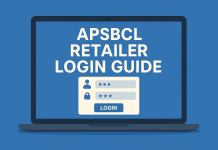Irrespective of whether you browse on a smartphone, tablet, or computer, the fast loading of web pages constitutes a basic expectation for most search users today. It has been more than a decade since Google incorporated website speed as an important ranking parameter.
As it goes hand in hand with user experience, websites that load faster are likely to rank higher on SERPs. In the wake of heightened mobile browsing in the last few years, Google has tweaked its search algorithms to accord higher visibility to efficient, mobile-friendly websites.
As a business owner, you can attain excellent online visibility for your website by ensuring that it has top-notch speed and a responsive design that adapts well to all screen sizes.
Here are 7 effective ways to increase your website speed for enhanced user experience and higher search rankings:
- Compress files before uploading.
There are multiple free software applications for compressing files prior to uploading them to your website. Collaborating with the right web design services will ensure that this vital aspect is adhered to at all times. Even after your site has gone live, all your subsequent posts should have optimized images. A good digital marketing agency can assist you with speeding up your website furthermore, with insights on images and files compression without affecting its visual appeal.
- Reduce the number of HTTP requests or redirects.
A certain number of HTTP requests are generated for opening your website, corresponding to the different design components of your site, such as scripts, fonts, style sheets, and images. These are also known as redirects, and it corresponds to every single page of your website, be it the home page, product pages, or other important landing pages. Asking your web developer to keep these requests minimal and weeding out all unnecessary redirects from the web development stage itself will ensure that there are no speed issues in the near future.
- Load your JavaScript and CSS Files to load asynchronously.
The synchronous loading of JavaScript and CSS files implies that there will be only sequential or chronological loading of files. This can adversely affect the speed of your web pages as the files load one by one from top to bottom. On the other hand, opting for asynchronous loading allows files to load simultaneously, and therefore save you precious time as far as the overall loading of your web page or website is concerned.
- Opt for Dedicated Hosting
Yes, shared hosting or virtual private hosting plans are cheaper as compared to dedicated hosting options. Yet, it is evident that the websites that rank highest on Google across various sectors and niches mostly have dedicated hosting plans. No matter how efficiently your chosen web design services do their job and how well your marketing partner or preferred digital marketing agency tailors your SEO campaign, the server response time is extremely crucial for your website speed. Also, the higher your web traffic, the slower is the server response time. So it is very important to opt for a hosting plan that is scalable and flexible as per the growing requirements of your business.
- Use Browser Cache for the benefit of repeat visitors.
Seeking permission to store browser cache into a user’s browsing device is an excellent way to speed up your website furthermore during their next visit. Owing to the stored cache information, the browser need not re-load the entire page from scratch during every subsequent visit. Especially for e-commerce websites, the browser caching feature is very important to spruce up the overall shopping experience, and draw in repeat shoppers.
- Reduce the Loading Commencement Time
As a prerequisite to the loading time of each web page, there is also something known as loading commencement time that affects your website speed. It refers to the time taken for the browser to receive the first data byte from the server. In technical terms, this is known as ‘time to first byte’. This factor might seem inconspicuous, but it directly affects website performance and must be paid heed to during the web development phase.
- Use a Global Content Delivery Network
If your business is not restricted to a limited geographical zone, it would be very useful to latch on to a global CDN. Doing this will ensure that no matter where in the world a search user is trying to open your site, the nearest server will take up the request and facilitate comparatively quick loading of your website.
Conclusion
Now that we have understood the correlation between website speed and higher search rankings and discussed ways to speed up your website, it would be worthwhile to state that making your website fast and efficient begins at the inception stage itself. Therefore, your choice of outsourcing to the right web developing and designing team is pivotal to all future endeavours to make your business website attain its SEO goals and successfully draw in higher organic traffic for greater leads and conversions.






